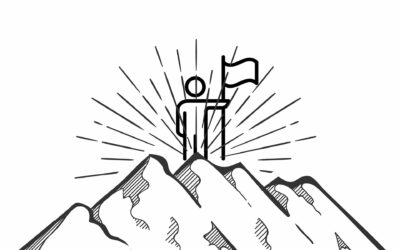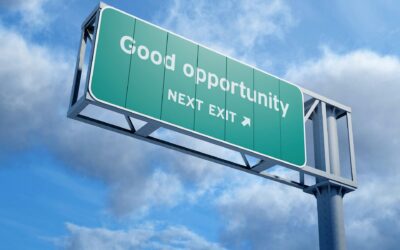Updated August 2022
In the mid 1990’s, a regional communications company launched a billboard advertising campaign that implored people to “Never Stand Still!” The underlying message was that to be successful, you must perpetually be on the go. God forbid you be still! Stillness is for weaklings and has-beens; the new breed of winners are those who are furiously busy and fully accessible. The ad was essentially saying: If you want to avoid missing out on emerging opportunities, you’ve got to be continually refreshed with up-to-date information. You need “all the news all the time,” and you’ve got to be electronically connected. You’ll be productive only to the extent that you are permanently interruptible.
Today, we see this same advice, day in and day out, as “entrepreneurship” trends upward. “Always be hustling!” This slogan is printed on billboards, across ads, pasted in Instagram captions, printed on T-shirts and coffee mugs, and adorns office walls as inspirational posters.
But “Never Stand Still” and “Always Be Hustling” are terrible pieces of advice. And dangerous, too.
If you are never still, you’ll never access what I call your golden silence. In my book, Right Risk, I emphasize the importance of finding a silence that emanates from the center of yourself, where your best decisions and your risks are calculated and taken with clarity. If you’re always hustling, then your risks will be taken in a haze of distraction.
Instead, standing still is exactly what we need to do before taking a risk.
Standing still teaches us composure and poise. Stillness helps focus the risk-taker. It enables her to regulate her emotions and discern the right course of action.
The importance of stillness was well described by Oprah Winfrey in an editorial in O Magazine. In running her production company, Harpo, Oprah was pulled in many different directions by many different people. To get centered, she walks into the closet, sits on the floor, and–in her words–goes “still as a stone.” She writes, “When I walk out, I am centered on what’s most important and can make decisions based on what’s right for me, not on what everyone else wants or needs. I’ve learned that the more stressful or chaotic things are on the outside, the calmer you need to be on the inside.”
The French mathematician Blaise Pascal famously said that all of man’s problems stem from the inability to sit alone quietly in a room.
Those words are more relevant today than they were in his time. We seem to have lost the ability to saunter, to carry on a lingering conversation, to kick back and relax. Instead, anxiety and worry are talked about with pride. With a good deal of self-importance, business leaders often talk about what keeps them up at night or how they’re always hustling and grinding. Imagine if stress-induced insomnia were an actual key to professional success! Fortunately, it isn’t.
Busyness has become the preoccupation of our age.
The only quiet moment we seem to get is that brief interlude in the morning while we are waiting for our computer to boot up, or social media to load. We seem hell-bent on keeping ourselves distracted. We crank up the radio volume in our car. Subscribe to podcasts and apps and platforms. Unwind with binge-watching Netflix. Cut deals on our smartphone at the playground, and spoon-feed our minds with Internet news. Then work harder to buy more laborsaving devices. And the more we acquire, the unhappier we seem to get. For as much as our phones and tech have put us in touch with others, they have put us way out of touch with ourselves.
Slowing down, drawing boundaries, and centering yourself helps you get to know the real you.
The problem with “always hustling” and the boundary-less world is just that–we have no boundaries. We allow the world in with no filter to help us decide the relative importance of this information. When everything is urgent, all things get trivialized. Henry Thoreau’s writing is instructive here. He noted that when we fritter back and forth at the whim of the external world, we dull our ability to prioritize what is truly important. In his last book, Walking, he writes that this kind of undisciplined thinking results in more than just mental laziness. It can permanently profane how we think.
The scariest part for most “hustlers?” They’re afraid to stop…because they might not feel comfortable with the company they keep (themselves).
But slowing down, drawing boundaries, and centering yourself helps you get to know the real you. You’ll find that, over time and with practice, the more you can teach yourself to be still, the stronger your self-assurance will grow. With this growth is the clarity you need as a leader.
Real leaders don’t hustle 24/7. They prioritize their goals and go after them with a steady centeredness. They take risks that will provide big returns because they know which ones will best serve them, not the whims of the external world.



